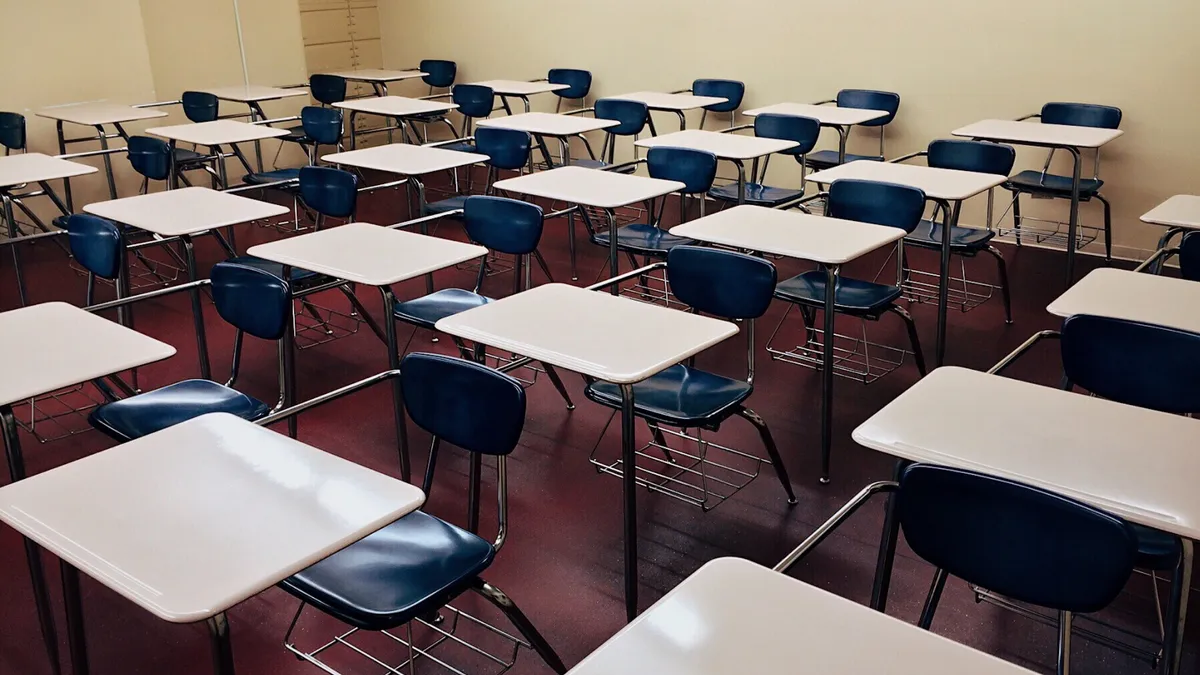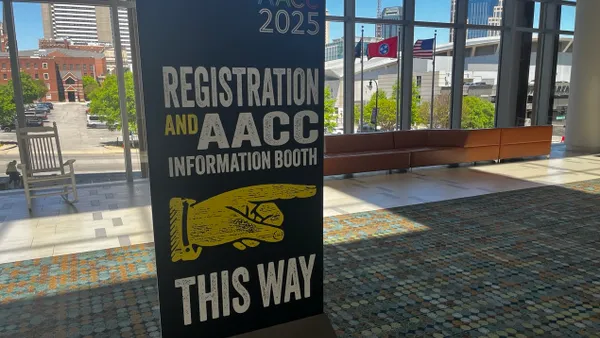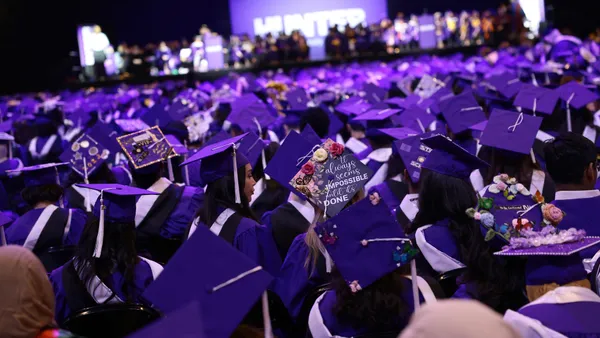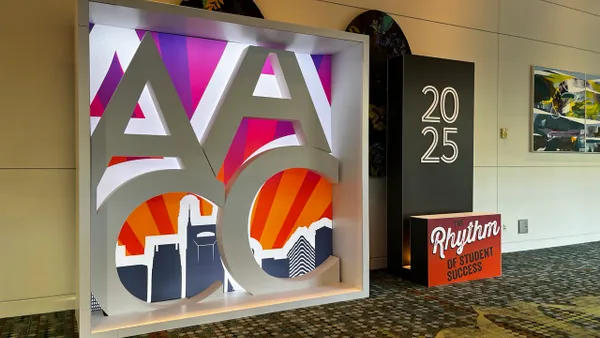Dive Brief:
-
Making admissions tests optional at private colleges is associated with modest enrollment gains among students from underrepresented racial and ethnic minority groups, low-income students and women, a new study found.
-
The research, published recently in the American Educational Research Journal, examined 99 private colleges that adopted test-optional policies between the 2005-06 and 2015-16 academic years.
-
The findings offer a glimpse at the effects of changing to test-optional admissions, a move an increasing number of institutions are making.
Dive Insight:
The study explores the relationship between test-optional admissions and metrics such as application numbers, enrollment and yield rates across a range of institution types and selectivity levels. Although earlier research focused mostly on selective liberal arts colleges, the paper notes, a wider variety of schools have adopted test-optional politics in recent years.
It found first-time enrollment among underrepresented minority students increased between 10% to 12%, and by 6% to 8% among women, in the first few years after the schools moved to test-optional admissions. The study considered underrepresented groups to be Black, Latinx and Native American students, its author, Chris Bennett, said in an email. Enrollment among federal Pell Grant recipients also jumped by 3% to 4%.
"While these findings indicate that the relative changes were somewhat sizable, due to the demographic makeup of the schools, they amounted to modest absolute changes as a share of the student body," Bennett, a Ph.D. candidate at Vanderbilt University, in Tennessee, wrote on Twitter.
As a result, test-optional policies alone "may be insufficient to achieve a more transformative change" in representation of underrepresented students at selective institutions, the study explains.
Although the study did not find that moving to test-optional admissions increased application volume, Bennett noted in his report that "there may have been a short-term rise during the first few years of the policy."
FairTest, an organization that advocates for equitable uses of standardized exams, celebrated the findings.
Bob Schaeffer, its executive director, said in an emailed statement that they affirm the group's position that moving to test-optional admissions results in "better qualified applicants and more diversity of all sorts."
Bennett said on Twitter that it's hard to "fully anticipate" the effects of the rash of new test-optional policies spurred by the pandemic. FairTest estimates more than half of U.S. four-year colleges and universities — about 1,350 schools — won't require SAT or ACT scores for fall 2022, which includes institutions that were test-optional prior to the health crisis.
The rapid escalation of such policies dealt a big blow to testing providers, which already were facing accusations their exams are not equitable and accessible. A federal judge recently signed off on a $16 million settlement in California from ACT, which allegedly shared with colleges the disability status of certain students who took the test.













